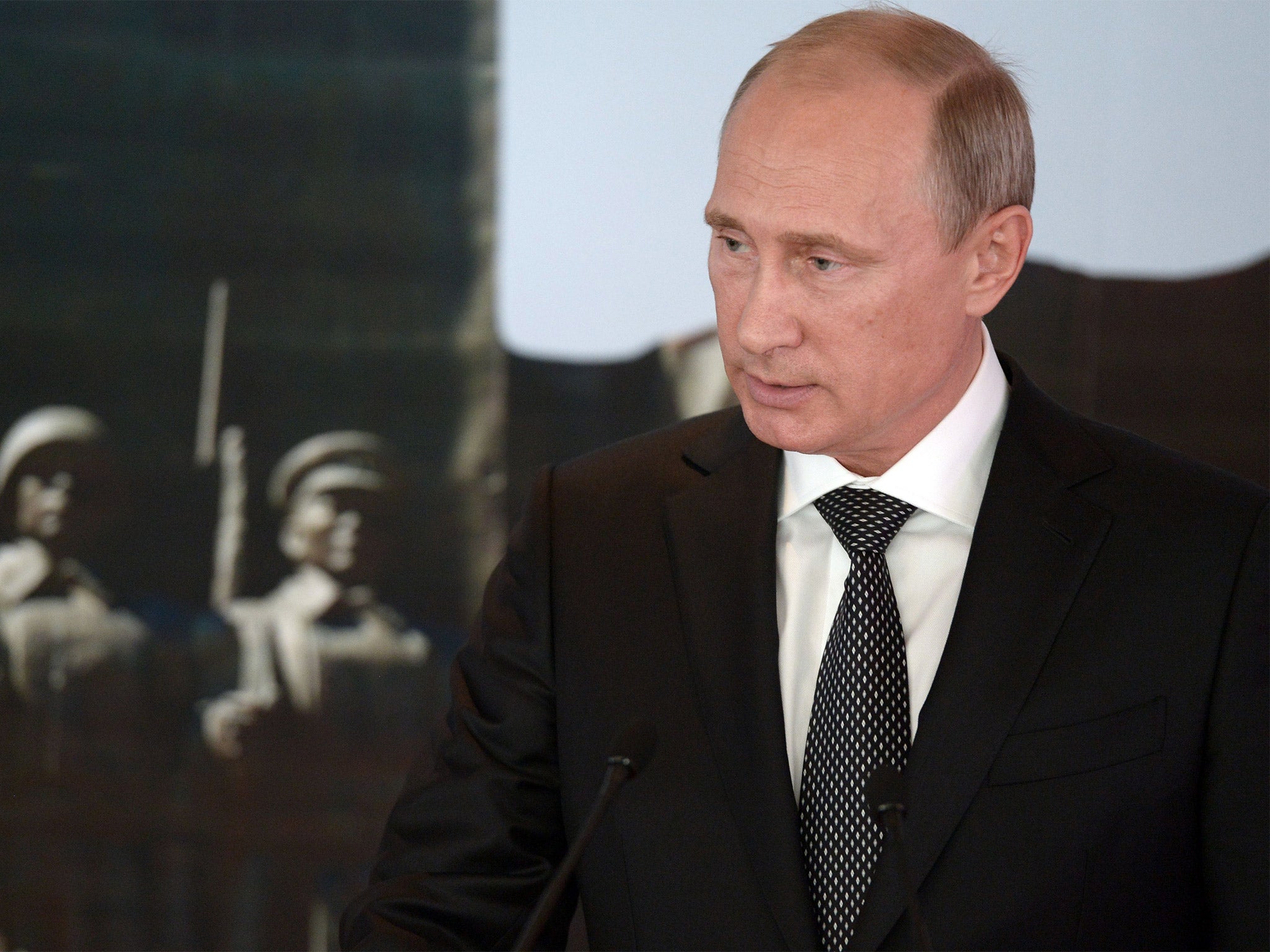Ukraine crisis: A ceasefire suits both parties – but how long will it last?
The question is: is this more than a publicity stunt?


A summit meeting is never just a meeting, it is also a theatrical production. As Nato leaders prepared for their summit, they envisaged at least two audiences: their own publics at home, and Russia.
Nato, it turns out, is not alone in its sense of theatre. Whether by chance or by design, Russia stole some of the limelight yesterday, when President Putin, during a trip to Mongolia, announced a ceasefire and a seven-point agreement to end the war in eastern Ukraine. The President of Ukraine, Petro Poroshenko, sent out the same news. They said there was a prospect of a peace agreement just in time to share the headlines with the fire and brimstone statements about Russian aggression likely to come out of Wales.
The question is whether the ceasefire in Ukraine is anything more than a publicity stunt; and even if it is, whether it has any chance of bringing the conflict to an end. Recent experience is not encouraging. There have been several attempts to halt the fighting, none of which have come to anything. One, negotiated by the Russia’s Foreign Minister, Sergei Lavrov, and the US Secretary of State, John Kerry, was ignored by those fighting on the ground. Two months ago, the pro-Russian separatists offered a ceasefire, only to have it rejected by the government in Kiev, whose forces were then advancing. Poroshenko’s hope appeared to be for a military victory that would reunite the country.
That calculation failed, partly because of the downing of the Malaysian plane in a rebel-held area, and partly because the rebels – possibly receiving more help from Russia – took back some territory and seemed ready to fight, street by street if necessary, for their remaining strongholds of Lugansk and Donetsk.
Over the past month, casualties among fighters and civilians have passed 2,500; there are now estimated to be a million refugees. The Kiev government is also receiving a more critical foreign press, with TV reports from inside the besieged cities and Human Rights Watch cataloguing atrocities on both sides.
For all these reasons – plus, perhaps pressure from the EU concerned about the economic cost of underwriting an increasingly bankrupt Ukraine – it appears that Poroshenko has plumped for trying to end the conflict. A ceasefire may suit the rebels, too, because for all the Western talk of a Russian “invasion”, Russia has actually done the barest minimum to keep the rebel cause alive. If it had wanted to incorporate more territory into Russia by force, it could have done so long ago.
The Russian President is also starting to face domestic pressure from two sides: from those concerned about Russian casualties on the one hand and from those encouraged by the annexation of Ukraine to believe that a newly confident Russia could take the whole country.
So if Poroshenko wants a ceasefire, Putin wants a ceasefire, and the rebels have understood there are limits to Russian help, what could prevent the ceasefire holding? One answer concerns the divisions that have emerged on both sides of the conflict. The rebels in the east have always resembled a collection of militias, rather than a fully disciplined fighting force. There was scant welcome for the ceasefire announcement yesterday and there may well be dissidents who want to fight on.
Poroshenko, despite a strong electoral mandate, has failed to unite all political forces in a common purpose even outside the rebel east, and recently called parliamentary elections in the hope a new parliament could generate greater stability. Those of a less acceptable nationalist tendency could well oppose a ceasefire, too.
All that said, the chief obstacle to talks, let alone to an agreement, may have been overcome. Until yesterday, Poroshenko was insisting on negotiating with Russia; Putin was insisting that this was an internal Ukrainian conflict and Poroshenko should deal directly with the rebels. It remains unclear how much, if any, control Russia has ever had over the rebels. But if, as it appears, the rebels are more dependent now than they were on Russian military help, Moscow may be able to exert more influence than it could before. The next few days will show whether it can.
Join our commenting forum
Join thought-provoking conversations, follow other Independent readers and see their replies
Comments
Bookmark popover
Removed from bookmarks